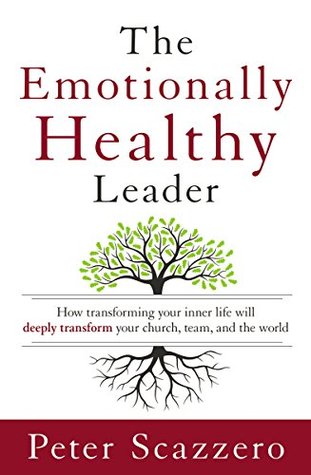More on this book
Community
Kindle Notes & Highlights
Read between
November 13 - December 7, 2019
Whatever the source and to whatever degree we have power, or influence, we have it as a divine gift. And the more power we have, the greater impact we exert — intentional or not — on those around us.
We must learn what it means to use our power and then how to establish wise and healthy boundaries in our relationships with others.
A good test of a person’s character is how they deal with adversity. But the best test of a leader’s character is how they deal with power. If we want to use our power well as Christ-followers, there are three things we must do: • Identify and inventory our power • Carefully steward our power so it comes under others • Acknowledge and monitor dual relationships
Jesus taught a “power under” strategy characterized by humility and sacrificial service.
When family members are able to serve in leadership and it works well, it is amazing. When it doesn’t work well, it is very bad and difficult to unravel. So, like any decision, it must be carefully discerned and discussed.
Embracing endings in order to receive new beginnings is one of the fundamental tasks of the spiritual life — and this is especially true for Christian leaders. Not every problem can or should be solved or overcome; some things just need to be allowed to die. This isn’t necessarily a failure.
We cannot control or stop the seasons. They simply come in God’s time.
Change is difficult for most people. We experience it as an unwelcome intruder derailing our hopes and plans. We prefer to remain in control and to operate in familiar patterns, even when they fail to serve us well. We might acknowledge intellectually that God can bring new beginnings and precious gifts out of our losses, but it somehow doesn’t ease the sting of
loss or prevent us from trying to avoid it. It isn’t easy to trust the inner voice of the Spirit inviting us to cross over into this painful and unknown new territory.
Our society doesn’t teach endings. Our churches don’t teach endings. Our families don’t equip us to embrace endings as part of the rhythm of life. When we add our own insecurities and fears, it seems obvious that we consider endings as interruptions to be avoided no matter what it takes. The problem is that, in the process, we block the new beginnings God wants to birth in and through us.
Before a new beginning can emerge, an ending must take place — and that ending must be final.
Nothing new takes place without an ending. Or, in the words of the Roman philosopher Seneca, “Every new beginning comes from some other beginning’s end.” The failure to identify and prepare for endings and the accompanying loss is perhaps the biggest obstacle that prevents so many of us from moving on to something new.
Why is waiting so important? God’s purpose in endings and losses is not simply about changing your external environment or circumstances. He is doing something even greater — initiating a deeper level of transformation in and through you far beyond what you may want.
In his seminal book Generation to Generation: Family Process in Church and Synagogue, psychologist Edwin Friedman wrote about this kind of transition: “Success depends on the previous partner being able to let go — but stay connected.”


